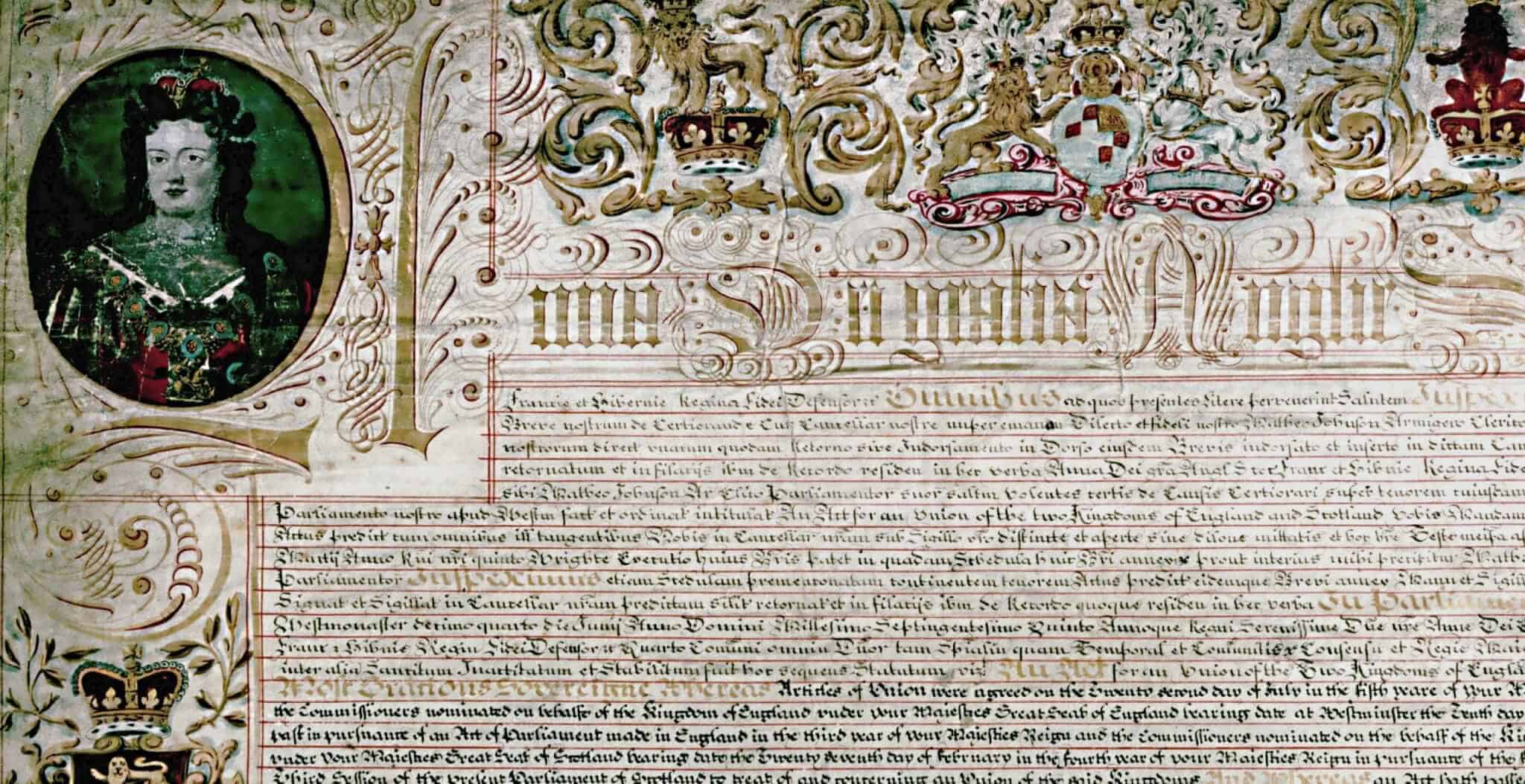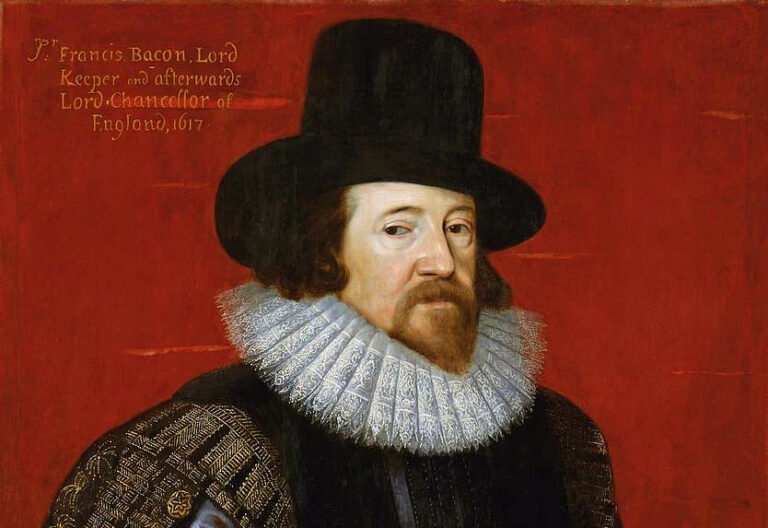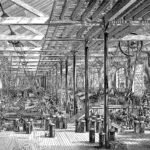The Acts of Union in 1707 changed British history forever. They united Scotland and England, creating Great Britain.
In 1707, two separate acts were passed by the English and Scottish Parliaments. These acts were known as the Acts of Union. This union wasn’t just about politics. It reshaped economies, cultures, and societies. The merger faced challenges and opposition.
Many Scots feared losing their identity. Meanwhile, some English worried about the economic impacts. Despite the controversies, the union brought many changes. It led to a single parliament in Westminster. It also opened new economic opportunities. Understanding the Acts of Union helps us grasp the roots of modern Britain. This blog will explore these significant events and their lasting impacts. Dive into the history and discover how 1707 shaped today’s United Kingdom.
Historical Background
The Acts of Union in 1707 represent a significant moment in British history. These acts unified the Kingdoms of England and Scotland into a single entity, the Kingdom of Great Britain. This union had profound social, political, and economic impacts.
Pre-1707 Political Landscape
Before 1707, England and Scotland were separate kingdoms. They had their own parliaments and systems of government. However, they shared the same monarch since the Union of the Crowns in 1603. This arrangement began when James VI of Scotland became James I of England.
Despite sharing a monarch, political tensions often arose. Each kingdom had different laws and interests. Conflicts and wars were common. The two parliaments had differing views on trade, religion, and governance.
Key Figures Involved
Several key figures played crucial roles in the Acts of Union. Queen Anne supported the union. She believed it would strengthen both kingdoms. The Duke of Queensberry, John Campbell, was a significant advocate for the union in Scotland. He worked tirelessly to convince the Scottish Parliament.
In England, Robert Harley, the Earl of Oxford, was influential. He was an experienced politician and played a key role in the negotiations. Others, such as Daniel Defoe, also contributed. Defoe, a famous writer, promoted the union through his writings and political efforts.
Both sides had their opponents as well. Many Scots feared losing their independence. They worried about English domination. The English had concerns about the financial burden of the union.
The debates were intense. Yet, the efforts of these key figures led to the successful passing of the Acts of Union.

Credit: www.historic-uk.com
The Road To Union
The Acts of Union in 1707 was a pivotal moment in history. It marked the unification of Scotland and England into a single kingdom: Great Britain. The journey to this union was complex and filled with many challenges. This section delves into the key stages that paved the way for this historic event.
Initial Proposals
The idea of uniting Scotland and England was not new. Discussions had taken place for many years. Early proposals often faced resistance. Both nations had distinct identities and concerns. But there were also shared interests, like security and trade. The 1603 Union of Crowns, when James VI of Scotland became James I of England, set the stage. Yet, it took more than a century to achieve political union.
Negotiations And Agreements
In the early 1700s, the political climate changed. Both nations saw benefits in union. Negotiations began in earnest. Delegates from Scotland and England met to discuss terms. These talks were detailed and intense. Key issues included trade, taxes, and laws. Compromises were necessary. In 1706, negotiators reached an agreement. The Treaty of Union outlined the terms. It required approval from both parliaments.
In Scotland, the debate was fierce. Some feared loss of sovereignty. Others saw economic advantages. After much discussion, the Scottish Parliament approved the treaty in January 1707. The English Parliament followed suit. On May 1, 1707, the Acts of Union came into effect. The Kingdom of Great Britain was born.
Key Provisions Of The Acts
The Acts of Union in 1707 were significant. They unified England and Scotland into one nation, known as Great Britain. This monumental event included many key provisions. These provisions shaped the political and economic landscape of the new union. Let’s explore some of these key provisions below.
Economic Terms
One of the major provisions was economic integration. The Acts allowed free trade between England and Scotland. This ended tariffs and restrictions. Both countries could now trade freely. This boosted the economies of both nations. Another important economic term was the sharing of debts. England and Scotland agreed to share financial responsibilities. This helped stabilize the new union financially.
Political Integration
The Acts also focused on political integration. The Scottish Parliament was dissolved. Scottish representatives joined the British Parliament in London. This unified the legislative process. It ensured both nations had a say in governance. The Acts also established a single monarchy. Queen Anne became the monarch of Great Britain. This symbolized unity and stability.
Immediate Impact
The Acts of Union in 1707 had a profound effect on both England and Scotland. This agreement unified the two countries, creating the Kingdom of Great Britain. The immediate impact of this union was felt in various aspects of life. From the economy to social structures, the changes were significant and far-reaching.
Economic Changes
The union opened new trade opportunities for Scotland. Scottish merchants gained access to English colonies and markets. This led to an increase in trade and wealth for many Scots.
Additionally, customs duties between the two countries were eliminated. This allowed goods to flow more freely, benefiting businesses and consumers alike. The integration of economies also meant that Scotland’s financial systems needed to align with England’s. This brought about the establishment of a unified tax system.
While there were benefits, some economic challenges emerged as well. Many small Scottish businesses struggled to compete with larger English firms. This led to some discontent among the Scottish populace.
Social Reactions
The social reactions to the union were mixed. In England, many saw the union as a positive step. It consolidated power and resources, strengthening the kingdom.
In Scotland, however, the reaction was not as uniformly positive. Many Scots felt a loss of sovereignty and national identity. There were protests and public outcries against the union.
The Scottish Parliament was dissolved, which fueled feelings of disenfranchisement. Additionally, many Scots were wary of English influence over their culture and traditions.
Despite these challenges, over time, the union led to a blending of cultures. People began to see themselves as part of a larger British identity. This shift did not happen overnight but was a gradual process.
Long-term Effects
The Acts of Union in 1707 created a significant impact on both Scotland and England. These acts merged the two countries into the United Kingdom of Great Britain. The long-term effects of this union are profound and diverse, affecting various aspects of life. The following sections will explore these effects in detail.
Political Stability
The union brought lasting political stability to the region. Before 1707, Scotland and England often faced conflicts and unrest. The Acts of Union ended these disputes. It created a single parliament at Westminster. This new parliament governed both countries under one rule.
Political unity led to stronger governance. It allowed for consistent laws and policies. The unified government also helped in creating a stable environment. This stability was crucial for economic growth. It also provided a platform for future political developments.
Cultural Integration
Another significant impact was cultural integration. The union allowed for the blending of Scottish and English cultures. This resulted in shared traditions and practices. People began to celebrate common festivals and holidays. It helped in creating a sense of unity among the citizens.
Education systems also saw changes. Scottish universities became more accessible to English students. This exchange of knowledge enriched both cultures. Art and literature flourished as well. Writers and artists from both countries influenced each other. This cultural exchange contributed to a richer, more diverse society.
In summary, the Acts of Union in 1707 led to political stability and cultural integration. These long-term effects have shaped the United Kingdom into what it is today.

Credit: www.reddit.com
Controversies And Opposition
The Acts of Union in 1707 brought together Scotland and England into a single state. It wasn’t without resistance and controversy. Both nations had their own reasons to oppose this union. Let’s explore the key areas of opposition.
Scottish Resistance
Many Scots were against the union. They believed it would harm their culture and economy. Scottish merchants feared losing trade advantages. They worried about higher taxes and fewer rights. The Church of Scotland also opposed the union. They wanted to protect their religious freedom. Public protests were common in Scotland. People voiced their discontent in pamphlets and gatherings. The Scots felt their Parliament was being taken away. They did not want to be ruled from London.
English Concerns
English citizens had their own worries. Some feared Scotland would drain resources. They thought the Scots might benefit more from the union. English merchants were wary of Scottish competition. They wanted to protect their own markets. Politicians had concerns about governance. They questioned how to integrate the Scottish legal system. There were also fears of increased influence of the Presbyterian Church.
Legacy In Modern Britain
The Acts of Union in 1707 were pivotal in shaping modern Britain. They united the Kingdom of England and the Kingdom of Scotland into a single entity, the Kingdom of Great Britain. This union has left a lasting legacy on the legal and cultural framework of the nation. Understanding this impact helps in appreciating the current dynamics of the UK.
Legal Framework
The Acts of Union created a unified legal system in Britain. Before 1707, Scotland and England had separate laws. Post-union, the legal systems were merged. This change streamlined governance. It also reduced conflicts between the two regions. The unified legal system laid the foundation for modern British law. Today, the UK operates under a single legal framework. This framework ensures uniformity across the nation.
Cultural Identity
The union impacted cultural identities in Britain. Scotland retained its distinct cultural elements. These include traditions, language, and education. Despite the union, Scottish culture thrives. It exists alongside the English culture. This blend enriches the UK’s cultural tapestry. Modern Britain celebrates this diversity. Festivals, music, and arts reflect a mix of both heritages. Such cultural integration makes Britain unique.

Credit: en.wikipedia.org
Contemporary Reflections
The Acts of Union in 1707 created a significant shift in British history. These acts united the Kingdom of England and the Kingdom of Scotland into a single entity: the Kingdom of Great Britain. This monumental change continues to spark discussions today. In this section, we explore contemporary reflections on this historic event.
Historical Interpretations
Many historians have studied the Acts of Union. They offer different interpretations of the event’s significance. Some view it as a positive step toward stability and prosperity. These historians argue that the union brought economic growth and political strength.
Others see it as a loss of Scottish sovereignty. They believe that Scotland was forced into the union through economic pressure and political maneuvering. This perspective highlights the unequal power dynamics at play.
To better understand these interpretations, let’s look at a table summarizing their key points:
| Positive Interpretations | Negative Interpretations |
|---|---|
| Economic Growth | Loss of Sovereignty |
| Political Strength | Economic Pressure |
| Stability | Political Maneuvering |
Current Debates
Today, the Acts of Union remain a topic of debate. Some argue that the union benefits both nations. They point to shared resources and common policies as strengths.
Others call for Scottish independence. They believe that Scotland should have the right to self-govern. This debate is particularly relevant in the context of Brexit. Many Scots feel that their interests are not adequately represented in the current political climate.
To summarize the current debates, consider these points:
- Shared Resources vs. Self-Governance
- Common Policies vs. National Interests
- Representation in Government
These debates highlight the ongoing relevance of the Acts of Union. They show that history continues to shape our present and future.
FAQs
What Were The Acts Of Union 1707?
The Acts of Union 1707 united the Kingdom of England and the Kingdom of Scotland into a single entity, the Kingdom of Great Britain. This political union was aimed at strengthening the two nations economically and politically.
Why Were The Acts Of Union 1707 Significant?
The Acts of Union 1707 were significant because they marked the creation of the United Kingdom. This union helped to stabilize the political landscape and promoted economic growth through unified policies and trade agreements.
How Did The Acts Of Union 1707 Affect Scotland?
The Acts of Union 1707 led to both economic benefits and political changes for Scotland. While it gained access to English markets, it also faced the loss of its own parliament, creating mixed reactions among Scots.
What Led To The Acts Of Union 1707?
Several factors led to the Acts of Union 1707, including political instability and economic challenges. The unification was seen as a solution to mutual threats and as a way to strengthen both nations.
Conclusion
The Acts of Union in 1707 changed British history. They united England and Scotland. This union created the Kingdom of Great Britain. The move faced challenges but brought lasting impact. Today, we see its effects in our daily lives. Understanding this history helps us appreciate our shared heritage.







